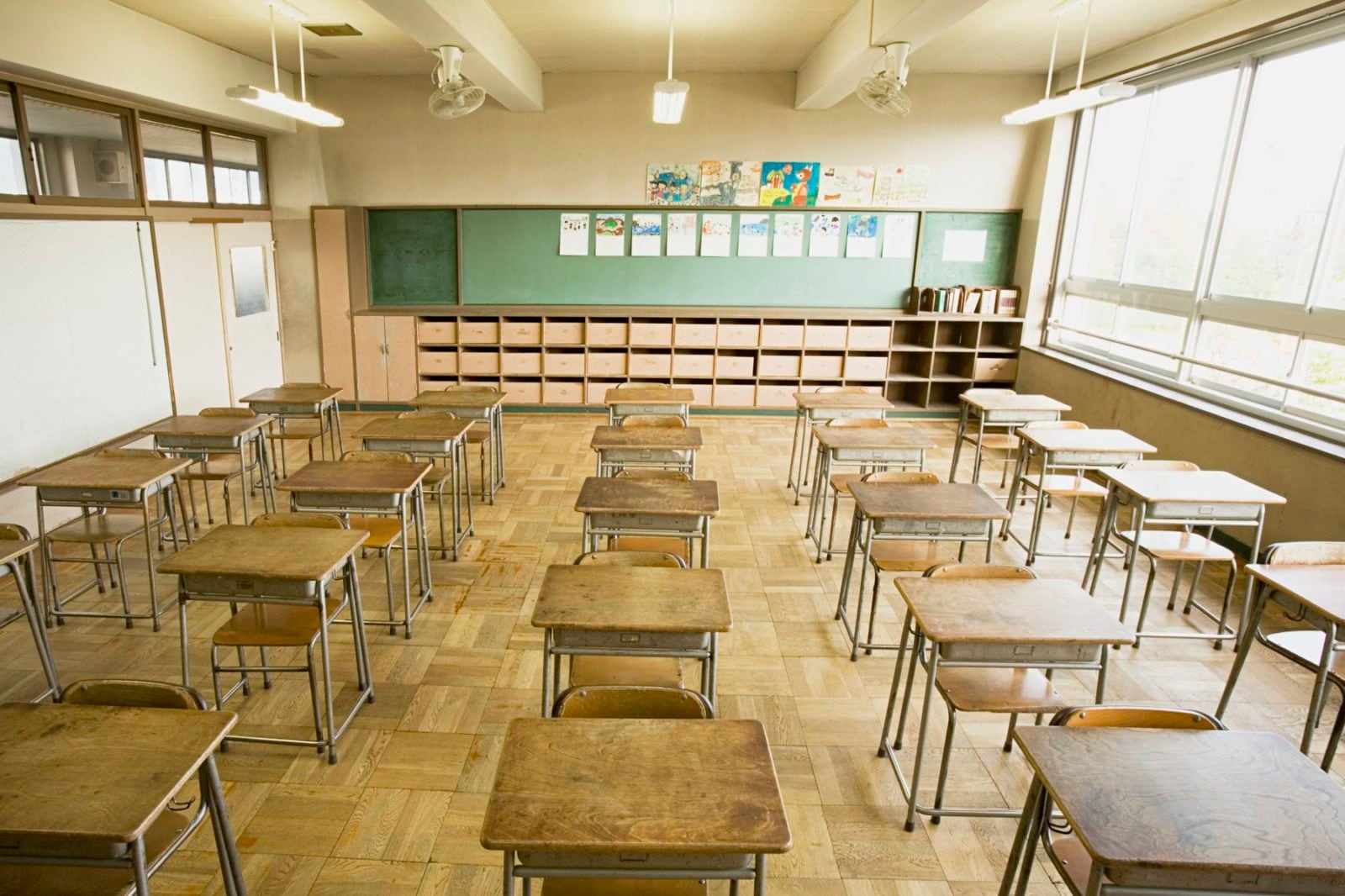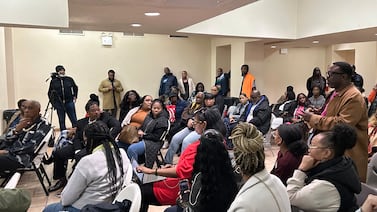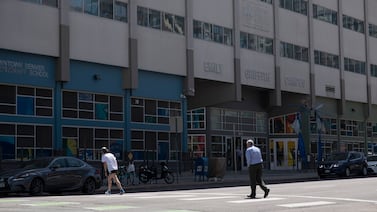Sign up for Chalkbeat Philadelphia’s free newsletter to keep up with the city’s public school system.
Philadelphia residents got their first opportunity to publicly comment and ask questions about the school district’s $4.5 billion budget proposal Thursday night at the final meeting of the board’s current iteration.
Community members asked the board for more funding for extracurricular activities, music and art programs, improved air filtration, and building renovations, among other requests. The budget will be up for a full board vote at the May 30 meeting.
The most pointed question Thursday evening came from student board representative Cavance Snaith, who asked if all schools would be outfitted with heating and air conditioning by 2030 under the district’s five-year capital plan.
Oz Hill, the district’s chief operating officer, said the “cold hard truth” is that it’s unlikely. Hill said underlying infrastructure and electrical issues and longstanding funding gaps stand in the way.
Much of Thursday’s meeting was also devoted to speeches from four of the board’s nine members who will be replaced on May 1, when Mayor Cherelle Parker’s nominees take their seats. Outgoing members thanked their colleagues and district staff for their diligence and guidance over the years of their time on the board.
Board members also unanimously approved a resolution renaming the district building after former Superintendent Constance E. Clayton.
Board approves millions in curriculum, SEPTA contracts
In their last official action as a board, members voted to approve nearly $234 million in contracts and construction change orders, including:
- Nearly $4.2 million for new StudySync English language arts curriculum resources. This money will come from COVID relief funds. The district already approved $20 million for the materials. This would be an additional allocation.
- $82.7 million for private pre-K providers that partner with the district to provide 180 days of “free, full-day, developmentally appropriate PreK instruction from qualified staff,” according to the board, as well as free breakfast, lunch, and snacks for young learners daily.
- $12 million for asbestos abatement and nearly $20 million for “environmental remediation and restoration” at Frankford High School, which has been closed since last year due to damaged asbestos.
- $34 million for a contract with SEPTA to provide fare cards for students. According to the board, Pennsylvania reimburses the entire cost of the Student Fare Card.
Board changes “goals and guardrails”
Board members also voted to amend and extend the “goals and guardrails” targets for student achievement that were originally set before the COVID pandemic. The board previously expected the district to reach the old benchmarks by 2026 and have monitored progress toward these targets every month. The new metrics approved Thursday are expectations for 2030.
The new targets as written in the board’s resolution are:
- The percentage of students in grades 3-8 who score “proficient” on the state ELA assessment will grow from 34.0% in August 2023 to 65.0% by August 2030.
- The percentage of third grade students who score “proficient” on the state ELA assessment will grow from 31.0% in August 2023 to 62.0% by August 2030.
- The percentage of students in grades 3-8 who score “proficient” on the state math assessment will grow from 20.7% in August 2023 to 52.0% by August 2030.
- The percentage of students who score “proficient” on the state literature high school assessment by the end of their 11th grade year will grow from 53.9% in August 2023 to 71.0% by August 2030.
- The percentage of students who score “proficient” on the state algebra high school assessment by the end of their 11th grade year will grow from 30.1% in August 2023 to 53.0% by August 2030.
- The percentage of students who score “proficient” on the state biology high school assessment by the end of their 11th grade year will grow from 31.4% in August 2023 to 54.0% by August 2030.
- The percentage of Career and Technical Education students who pass an industry standards-based competency assessment by the end of their 12th grade year will grow from 49.1% in August 2023 to 80.0% in August 2030.
Philly school board members say their goodbyes
Thursday’s meeting was the last for this iteration of the school board nominated by former Mayor Jim Kenney.
Board members Leticia Egea-Hinton, Julia Danzy, Cecelia Thompson, and Lisa Salley reflected on their years on the board and offered some advice for the new members. The status of longtime board member Joyce Wilkerson’s nomination is still uncertain; City Council President Kenyatta Johnson told reporters earlier on Thursday that she “doesn’t have the votes” to retain her position.
Wilkerson’s nomination has become a political flashpoint for the charter school debate in the city.
Board member Julia Danzy spoke out in support of Wilkerson, saying she “watched in horror” as council members interrogated Parker’s nominees last Friday about their willingness to expand and approve new charter schools, especially those with Black leaders.
After Thursday’s council vote, Johnson and Councilmember Isaiah Thomas vehemently denied that Wilkerson was being “singled out.” But her nomination has been the only one of Parker’s picks to be held up in the council hearing process.
“What I saw [at last Friday’s City Council hearing] was the litmus test for being a board member was, would you let the charter schools have what they want?” outgoing board member Danzy said at the board meeting. “There is something wrong with that.”
Speaking publicly for the first time since her nomination was deferred, Wilkerson also thanked the rest of the board in a speech mirroring the goodbyes of her fellow members, though Parker and Board President Reginald Streater shared statements on Thursday saying they would not be backing down on Wilkerson’s nomination.
“It’s a slate, not eight,” said Sarah-Ashley Andrews, a current board member and Parker nominee, noting she would not be saying goodbye to Wilkerson.
Egea-Hinton advised the new, incoming board members: that they’d better “put their seatbelts on.”
“It’s a rollercoaster ride,” Egea-Hinton said.
Carly Sitrin is the bureau chief for Chalkbeat Philadelphia. Contact Carly at csitrin@chalkbeat.org.






